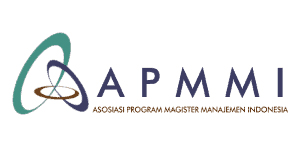Development of The Mangrove Environmental Sustainability Strategy (Mess) Model as an Integration of Business And Environmental Conservation
DOI:
https://doi.org/10.30996/jmm17.v11i2.11126Abstract
The development of this model is necessary to achieve a balance between business interests and environmental conservation by integrating local business needs with mangrove conservation efforts. This model supports sustainable management, improves the welfare of local communities, and supports the Sustainable Development Goals. This research prioritizes efforts to design a comprehensive and integrated framework for managing mangrove ecosystems. This research design combines quantitative and qualitative approaches. A quantitative approach is used to collect numerical data related to relevant business and environmental aspects. A descriptive approach is used to provide a detailed picture of the existing conditions and dynamics of local business interests as well as environmental conservation efforts in the mangrove areas studied. The results of the research application show that there is a balance between mangrove tourism exploration and environmental sustainability and conservation.
Downloads
Downloads
Published
How to Cite
Issue
Section
License
Authors who publish to JMM17: Jurnal Ilmu Ekonomi Dan Manajemen agree to the following terms:
- Authors transfer the copyright and grant the journal right of first publication with the work simultaneously licensed under a Creative Commons Attribution-ShareAlike 4.0 International License.. that allows others to share the work with an acknowledgement of the work's authorship and initial publication in this journal.
- Authors are able to enter into separate, additional contractual arrangements for the non-exclusive distribution of the journal's published version of the work (e.g., post it to an institutional repository or publish it in a book), with an acknowledgement of its initial publication in this journal.
- Authors are permitted and encouraged to post their work online (e.g., in institutional repositories or on their website) prior to and during the submission process, as it can lead to productive exchanges, as well as earlier and greater citation of published work (See The Effect of Open Access)












